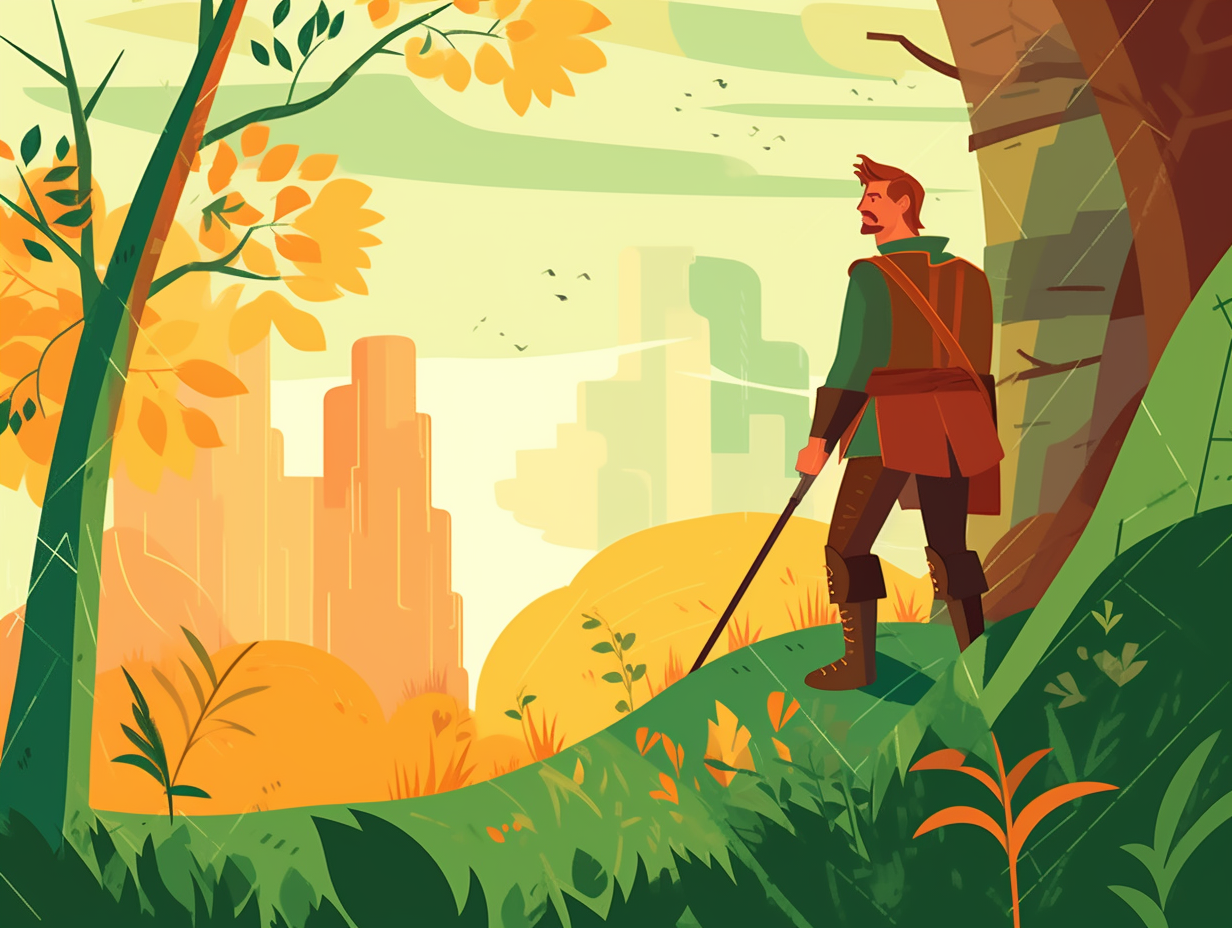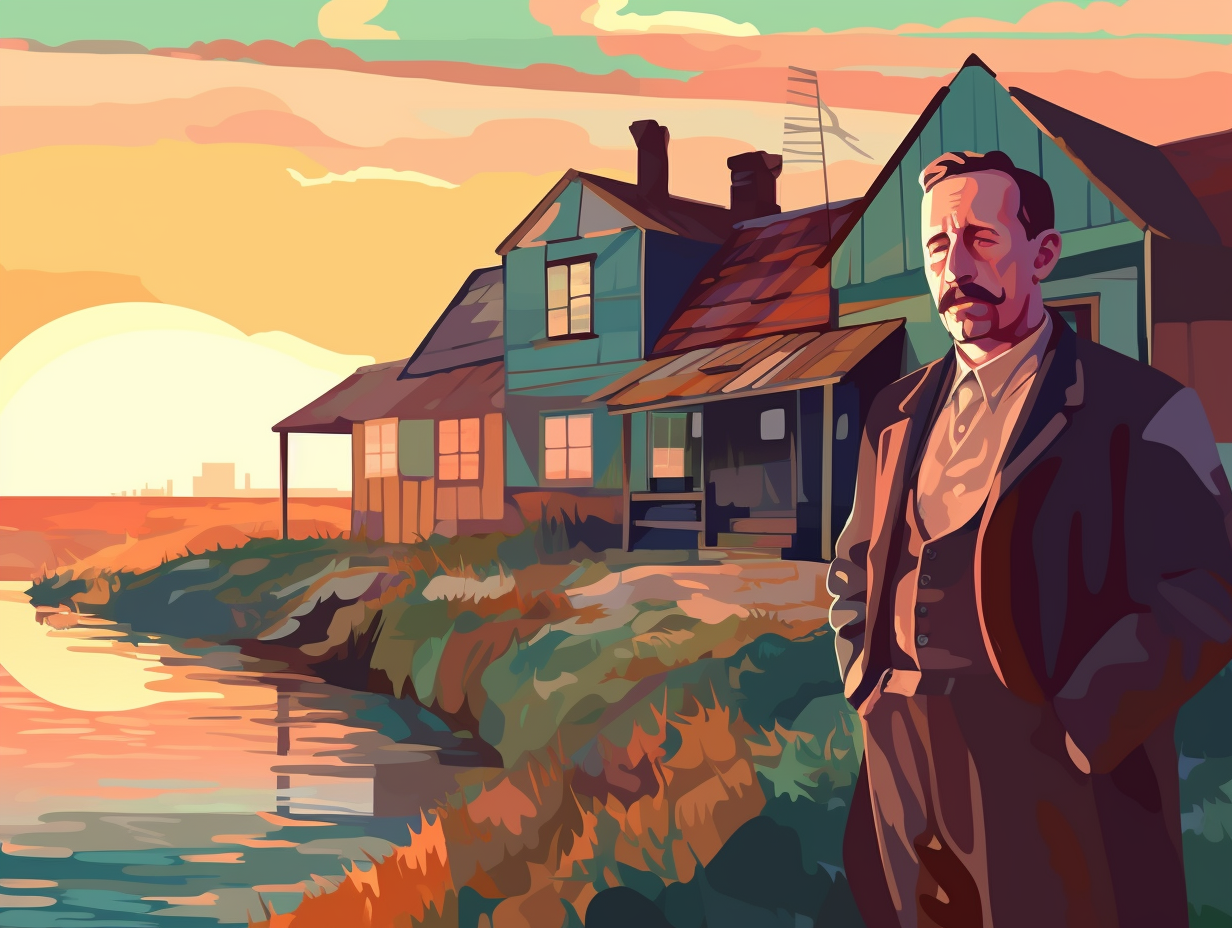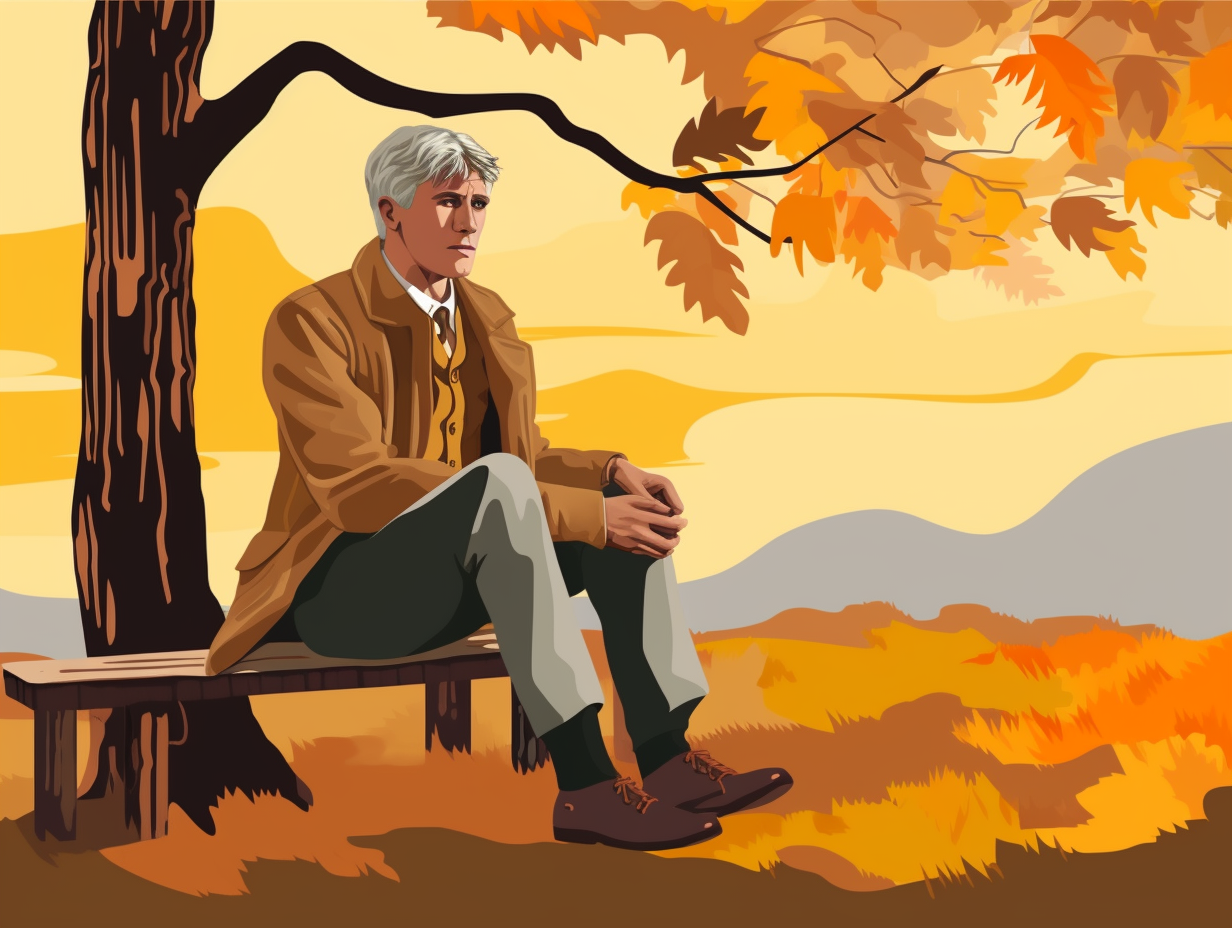Discover the Bard's Secrets: Top 23 Fun and Fascinating Facts About Shakespeare

1. Deer-licious Rumors
Deerly beloved, we are gathered here to debunk a tale of Shakespeare's wild venison escapades: Despite rumors of this bardly poacher making Sir Thomas Lucy's deer his prey, evidence remains elusive, and all we know for certain is that Shakespeare disappeared into marital bliss before resurfacing in London as a 28-year-old playwright ready to reinvent the world of drama.
Source => shakespeare.org.uk
2. Brewery Buddies Shakespeare & Katechis
Once upon a brew, in a world where the ale was a tale and private equity firms played the villain, our hero Dale Katechis of Oskar Blues Brewery stumbled upon his knight in shining armor, Sir Dan "Financial" Fireman: Together, this dynamic duo defied the odds and forged an alliance, expanding Oskar Blues into one of the largest craft brewers in the country, while continuing to seek out mid-sized brewers for equitable growth and hoppy endings.
Source => bostonglobe.com

Did you know the infamous Zodiac Killer may have been inspired by a 1932 movie adaptation of a short story? Discover the chilling connection and how it played a role in one of his tragic attacks.
=> Fun Facts about Literature
3. No Quilly Shakespeare Secret
You might think Shakespeare's monument holds a quill-ty secret, as if he hid a literary Easter egg in his own grave, but alas: the monument in Holy Trinity Church merely depicts the Bard holding a quill and paper on a cushion, which was a common symbol of learning during the 17th century, without any hidden references to his writing prowess.
Source => en.wikipedia.org
4. Royal BFFs: King James & Shakespeare
Whoever said "never mix business with pleasure" clearly forgot to tell King James I and William Shakespeare: The English monarch not only enjoyed the Bard's work but even sponsored his theater company, the Lord Chamberlain's Men. This group later became known as the King's Men, and to keep the royal favors coming, Shakespeare wrote plays like Macbeth to appeal to James' fascination with witchcraft, and King Lear and Cymbeline to show his apparent support for uniting England and Scotland as "Britain."
Source => sparknotes.com
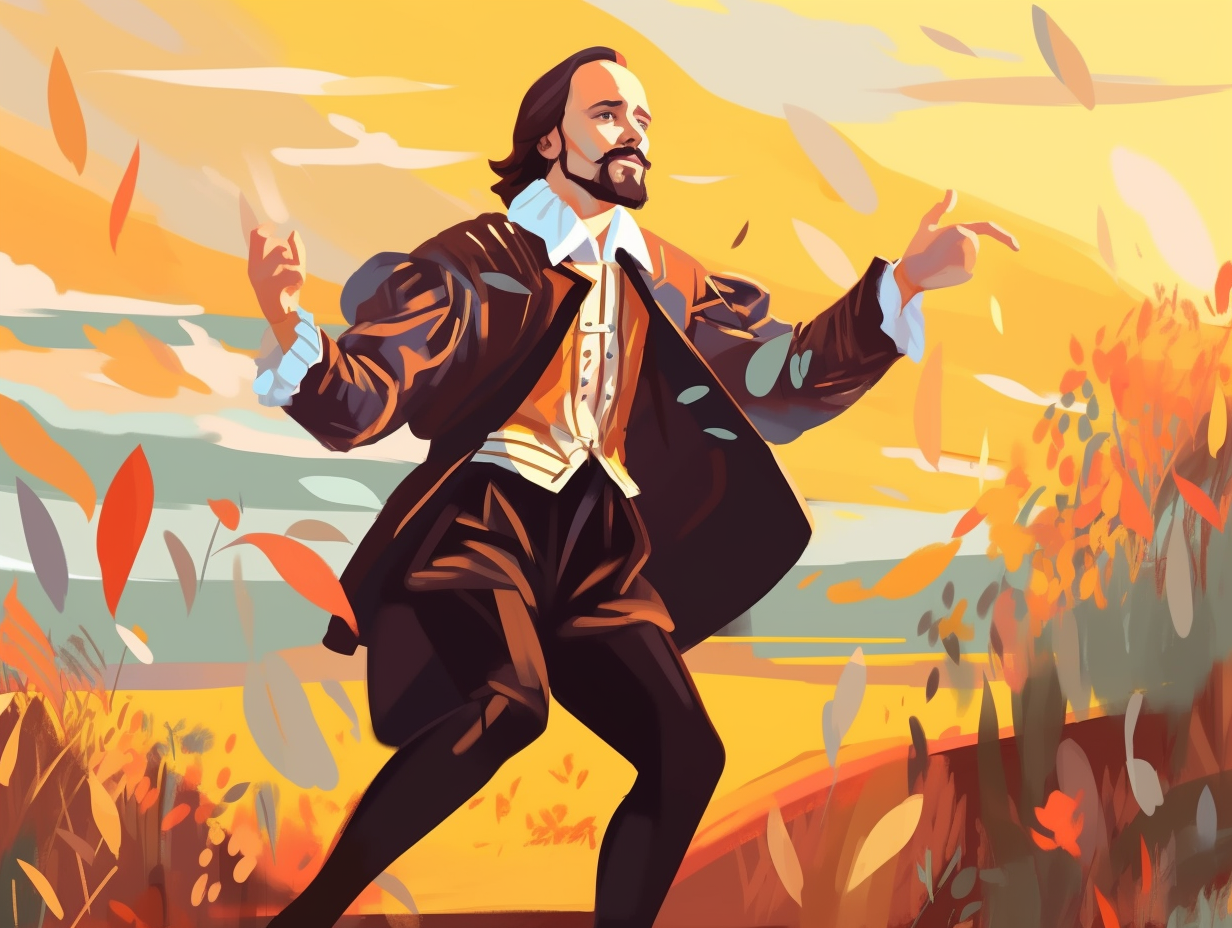
5. Tragic Plague-inspired Masterpieces
When life gave Shakespeare a plague-ridden lemon, he whipped up some of the finest tragic lemonade for our theatrical thirst: Between bursts of bubonic bedlam in London, with the death toll closing theaters left and right, the Bard busied himself penning immortal masterpieces like King Lear, Macbeth, and Antony and Cleopatra, ensuring a roaring comeback once the curtains were finally raised again.
Source => theatlantic.com
6. Speedy Shakespeare: Hamlet Haste
Heard of "Hamlet in a heartbeat?" Well, strap in for the speediest Shake-scene in history: The play with over 4,000 lines was whittled down to a mere 15-minute production called "The World's Fastest Hamlet" in Texas in 2008, with the four-member cast even performing a two-minute version and a lightning-fast ten-second one!
Source => parksquaretheatre.org
7. Wild Signatures of the Bard
Our dear Will, a.k.a. "The Bard of Avon," a.k.a. "Billy Boy Shakes," a.k.a. "Ol' Scribbles McSonnet" might just have had a love-hate relationship with autocorrect: brace for an unexpected orthographic ride, for his six surviving signatures all bear different, tantalizing versions of his name! We have legal records graced with the presence of "Shakspere," "William Shakspē," and many more, embellished with the breviographic conventions of his time; however, those who've whispered of 38 different spellings may have been exaggerating just a smidge.
Source => en.wikipedia.org
8. Shakespeare's Parental Control Troubles
Imagine if Shakespeare had to run his scripts through ye olde parental controls: Turns out, all of the Bard's plays had to be approved and censored by the Master of the Revels, an executive officer who governed over performances and playing companies throughout the land, charged licensing fees, and even signed off on the last page of approved manuscripts.
Source => en.wikipedia.org
9. The Bard's Rose Affair
When the Bard wasn't penning timeless classics or wooing fair maidens, he was low-key nurturing a green thumb and cultivating a blooming love affair with the Rose: In over 70 occurrences throughout his works, Shakespeare mentions various types of Roses as symbols of love, beauty, and the complexity of life, also paying homage to the national emblem of England since the War of the Roses. Scenes from Henry VI Part I showcase the emblematic power of the red and white roses, which later merged into the Tudor Rose, inspiring cultivated Rose varieties such as the Othello Rose and Prospero Rose, further solidifying Shakespeare's enchantment with these beloved flowers.
Source => bardgarden.blogspot.com
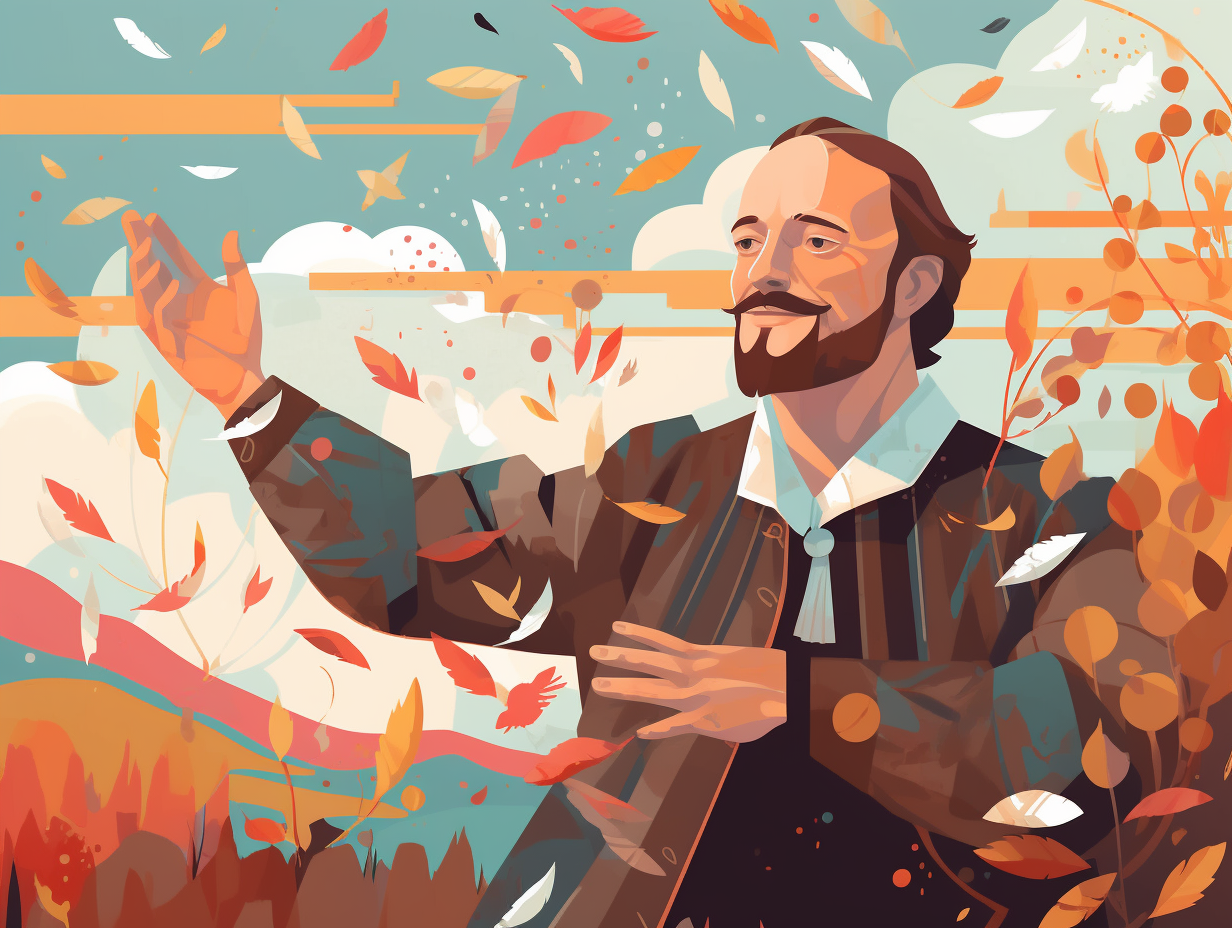
10. Quirky Handwriting Quandaries
"Alas, poor Yorick! His handwriting was... unique": Shakespeare's penmanship was a blend of italic and secretary scripts, so distinctive with its swift yet careless style, and fondness for C replacing minuscules, that experts have even compared it to documents like a letter from the Earl of Southampton and additions made to Sir Thomas More's play for similarity. Fear not, for there's no proof his script was unreadable, just a quirky signature of the Bard himself.
Source => en.wikipedia.org
11. Will's Plus-One Collaborative Plays
Next time you're at a playdate, don't forget to bring a friend - because old Billy Shakes was all about that plus-one life: Shakespeare frequently co-wrote his plays with fellow playwrights, such as Titus Andronicus, Henry VI, Timon of Athens, Pericles, Henry VIII, The Two Noble Kinsmen, and the lost Cardenio, showcasing his adaptability and openness to a variety of writing styles.
Source => shakespeare.org.uk
12. Birth-Death Drama Double Take
Who says you can't have your cake and eat it too? In the case of the ultimate birthday treat for William Shakespeare, he was both born and kicked the Elizabethan bucket on April 23rd: it is celebrated as the Bard's big day because his baptism and death were recorded on that day. Funny enough, he was baptized just three days after his birth, suggesting he made a grand entrance on or just before the 23rd, only to make his dramatic exit at age 52 on the very same day (though no stage directions indicated that).
Source => shakespeare.org.uk
13. Globe Theatre's Flammable Past
Say "Timber!" to the original Globe Theatre, as it had a habit of going out with a bang, literally: Shakespeare was a shareholder in the business that built the 1599 playhouse, which was constructed using timber from a disassembled theatre owned by Richard Burbage. The fiery conundrum was resolved when the Globe was rebuilt after a fire in 1613 with a fire-retardant thatched roof. However, it closed in 1644 and was only reconstructed in the 1990s by Sam Wanamaker, who added a touch of modern practicality to its authentic green oak framework.
Source => amdigital.co.uk
14. Shakey's Newfangled Lingo
William Shakespeare: not just the original Bard, but also the original wordsmith that gave us the verbal elbow room to chase wild geese with a heart of gold and fight assassinations with our newfound eyeballs: As grand master of wordplay and puns, he contributed around 1,700 new words to the English language, some of which we still use today, such as "elbow room," "heart of gold," "tower of strength," and "wild-goose chase." However, it's worth noting that "eyeball" and "assassination" were not his creations, as is often assumed.
Source => rsc.org.uk

15. Shakespeare's Cradle-Robbing Romance
Till age do us part: William Shakespeare, the bard of bended knees and love confessions, walked down the aisle (or perhaps hitched up his tights) with Anne Hathaway, who had a notable eight-year head start on him in the age department. Factual reveal: Anne was ripe for plucking at a sweet 26, the average marrying age at that time in 1582, while young Will was just 18 and keen to make an honest woman of her, needing Anne's father's approval and a bishop's court license to speed up their nuptials and avoid any scandal over their soon-to-be born daughter Susanna.
Source => shakespeare.org.uk
16. Exclusive Juliet's Balcony Proposals
Wherefore art thou, Romeo? Try the balcony! As it turns out, love-struck Romeos of the modern era can whisper sweet nothings to their Juliets in the very same spot as the original star-cross'd lovers: Juliet's balcony in Verona, Italy, is available for exclusive marriage proposals, featuring a personal wedding planner, a red rose, and guided access to the infamous balcony to ensure the element of surprise remains intact.
Source => romeoandjulietguide.com
17. Original Burn-master Shake-ster
Who knew "Ol' Billy Shakes" could deliver burns worthy of a sitcom roast-master? Err… methinks we hast found the original "yo mama" jokester: Shakespeare was a maestro of insults, crafting brutally hilarious jabs like “You are as a candle, the better burnt out” and “Thou subtle, perjur’d, false, disloyal man!” that live on today in everything from lively banter to unapologetic meme warfare.
Source => nosweatshakespeare.com
18. Macbeth's Theater Curse
Knock, knock! Who's there? Not Macbeth in a theater, that's for sure: Mentioning the name "Macbeth" inside a theater is believed to curse the production, a superstition rooted in the death of the actor playing Lady Macbeth during opening night in 1606, allegedly caused by the wrath of a coven of real witches.
Source => lamar.edu
19. Real Estate Shopaholic Shakespeare
Didst thou know that the original Monopoly Man, William Shakespeare himself, went on a real estate shopping spree whilst penning his famous plays? His penchant for properties and culinary staples would make even the Kardashians pale in comparison: Our beloved Bard of Avon bought several estates such as New Place in Stratford-upon-Avon and a London abode near the Blackfriars playhouse; he also hoarded 10 quarters of malt as recorded in a 1598 grain storage survey in Stratford. Alas, today none of these properties remain in private hands, falling instead under the stewardship of trusts and public organizations to preserve the legacy of dear Shakespeare.
Source => shakespearedocumented.folger.edu
20. Bear-Chaos: Elizabethan Revenant
Next time you're at a bear-y entertaining play, remember this: In Shakespeare's time, bears were the talk of the town, often being baited and attacked by dogs for amusement, influencing The Bard's famous stage direction "Exit, pursued by a bear" in The Winter's Tale. Who knew the Elizabethan version of 'The Revenant' existed back then? But hold your bear hugs: Although real bears weren't used in early productions, Shakespeare's rivals, the Lord Admiral's Men, cleverly used bearskins to create a bear-ly believable illusion on stage, leading to modern productions featuring everything from intricate puppetry to symbolic representations of our furry thespians.
Source => shakespearesglobe.com
21. The Shakespearean Bible
The original Shakespearean Bible: a tale where comedies, tragedies, and histories replaced psalms, where Hamlet delivered sermons, and where Romeo and Juliet pioneered relationship goals: During the Victorian era, writers regarded Shakespeare's works as a secular substitute for the Bible, dubbing him "The God of our idolatry" and praising him as the greatest literary mind, psychologist, and portrayer of the human experience in a fervent adoration known as bardolatry.
Source => en.wikipedia.org
22. Diary of a Bard: Sonnets & Dark Lady
Before Shakespeare's sonnets hit the 17th century version of the New York Times Bestseller List, they were as private as your teenage diary, with a mysterious "Dark Lady" playing the role of the high school heartthrob: In fact, it wasn't until two years after the Bard's death that a daring publisher named Thomas Thorpe compiled 154 of these poetic gems into a collection titled "Shake-Speares Sonnets," and the identity of the enigmatic "Dark Lady" continues to be the subject of hot scholarly gossip.
Source => ocregister.com
23. Shakespeare: Literary Ninja & Folger Treasure Trove
Rumor has it that Shakespeare's quill was mightier than the sword, making him a true literary ninja, stealthily penning those timeless masterpieces: In reality, our favorite Bard wrote an impressive 38 plays and over 150 poems, which have been translated into every major living language and continue to captivate audiences globally. The Folger Shakespeare Library proudly possesses the world's largest collection of Shakespearabilia, including a whopping 82 copies of the priceless First Folio of 1623.
Source => folger.edu
Related Fun Facts



